RHI scandal: Sinn Féin "not interested" in crisis talks
- Published
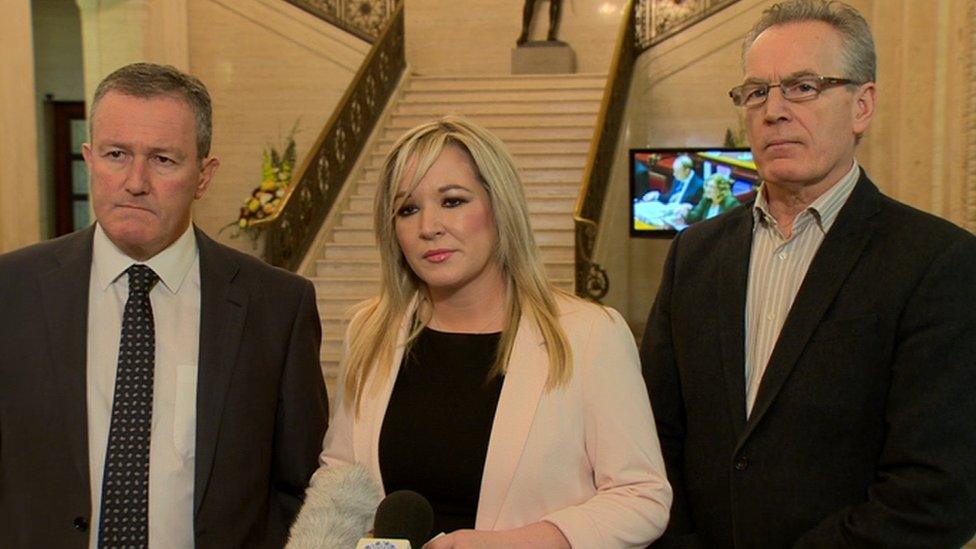
Sinn Féin said they will not be nominate a new deputy first minister next Monday
Sinn Féin has said it will not enter negotiations ahead of a new assembly election following the crisis over the Renewable Heat Incentive (RHI) scandal.
Party officials met Secretary of State James Brokenshire on Wednesday morning.
Martin McGuinness resigned as deputy first minister in protest against the botched handling of the scheme, which could cost taxpayers £490m.
Mr Brokenshire said it is "highly likely we are heading towards an election".
Sinn Féin is to hold the first of a number of election selection conventions on Sunday.
Prime Minister Theresa May said that the government is treating with the situation with the "utmost seriousness".
Speaking at Prime Minister's Questions, she said the government was putting in "every effort" to ensure a solution is reached, adding that Northern Ireland's voice would continue to be heard in Brexit negotiations.
What happens now the deputy first minister has resigned?
Mrs Foster set up the RHI scheme in 2012 when she was enterprise minister, in an attempt by the NI Executive to increase consumption of heat from renewable sources.
However, businesses received more in subsidies than they paid for fuel, and the scheme became heavily oversubscribed.
Elections 'will be brutal'
Mr Brokenshire is holding talks with the main parties and Justice Minister Claire Sugden within the next 24 hours.
Mrs May and Taoiseach (Irish prime minister) Enda Kenny have also pledged to do what they can to resolve the crisis.
Under Stormont rules, Sinn Féin have until next Monday to nominate a new deputy first minister, or the secretary of state must call an election.
The election, which is widely predicted to take place in early March, could cost the taxpayer around £5m.
Electoral Commission sources have said the direct cost of last May's assembly election was approximately £3.1m, with a further £1.8m spent on candidate election literature.
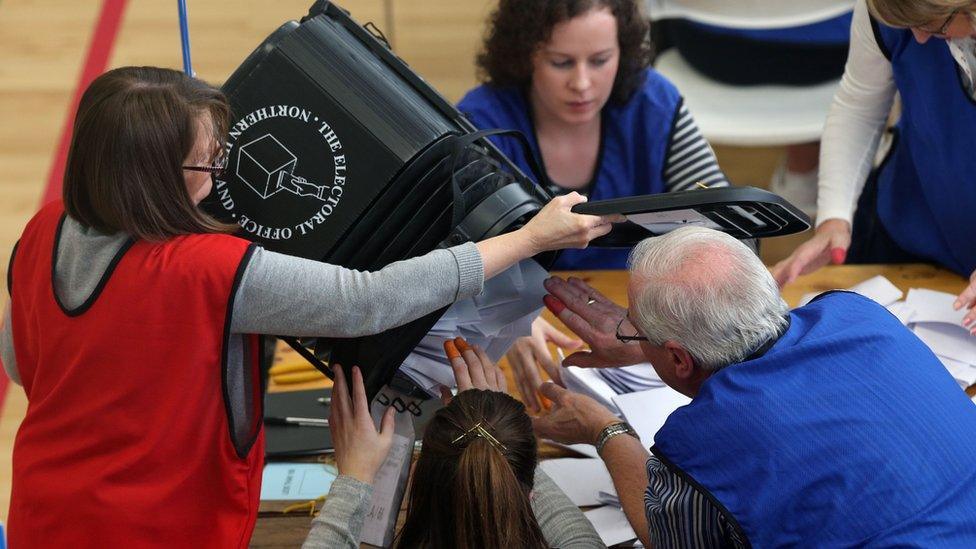
An election could cost the Northern Ireland taxpayer £5m
Speaking after talks with Mr Brokenshire, Sinn Féin's Michelle O'Neill said the party was "not interested" in entering negotiations before the electorate had their say on the conduct of the DUP.
"We made it very clear to him that we need to move to an election, that Sinn Féin will not be re-nominating next Monday," she said.
"What we need is fundamental change. We believe the public need to have their say.
"There's been a disrespect to the public by the DUP over the last number of weeks and months in relation to this issue (the RHI crisis), a disrespect for the public in relation to listening to the views, the concerns out there."
Mrs O'Neill also said that Sinn Féin still wants to see an inquiry into the RHI crisis that is transparent and can compel witnesses to give evidence, so that it "commands public confidence".

Analysis: Enda McClafferty, BBC News NI Political Correspondent
Efforts to try to save the institutions at Stormont and avoid an election are set to intensify in the coming days.
However, with Sinn Féin insisting an election is inevitable there is little hope the crisis that has brought politics in Northern Ireland to standstill will be resolved anytime soon.
Sinn Féin's Gerry Kelly said the party would not accept any inquiry set up by DUP, but whether they would accept an inquiry set up by the justice minister or the secretary of state remains to be seen.
James Brokenshire has an eye on the negotiations post-election.
A key demand from Sinn Féin was that Arlene Foster step aside while an investigation goes ahead and she is now out of office.
The secretary of state, therefore, may be working on a plan to instigate some kind of inquiry to run along side an election.

Ulster Unionist Party leader Mike Nesbitt said he believed Mr Brokenshire now "understands that an election is unavoidable".
He also said that direct rule from Westminster is a possibility should the two biggest parties returned in the election fail to reach agreement.
"The crisis is not at the making of the other parties. It is an illustration of the fact that the DUP and Sinn Féin, who've been at it for 10 years, have offered ultimate proof that they cannot work together."
Colum Eastwood, leader of the Social Democratic and Labour Party (SDLP), said there could be no return to direct rule.
He said that joint authority between the Irish and UK governments was the only "acceptable position for the nationalist community" should the Stormont institutions fail to be re-established after the election.
Mr Brokenshire has refused to say whether joint authority would be a possibility or if Northern Ireland could see a return to direct rule.
On Tuesday night, Mrs May and Mr Kenny agreed the situation is very serious in a 15-minute telephone conversation.
They also asked Mr Brokenshire and Irish Foreign Minister Charlie Flanagan to work together with the parties to find a solution.
Former first minister Arlene Foster warned that if an election goes ahead, it will be "brutal".
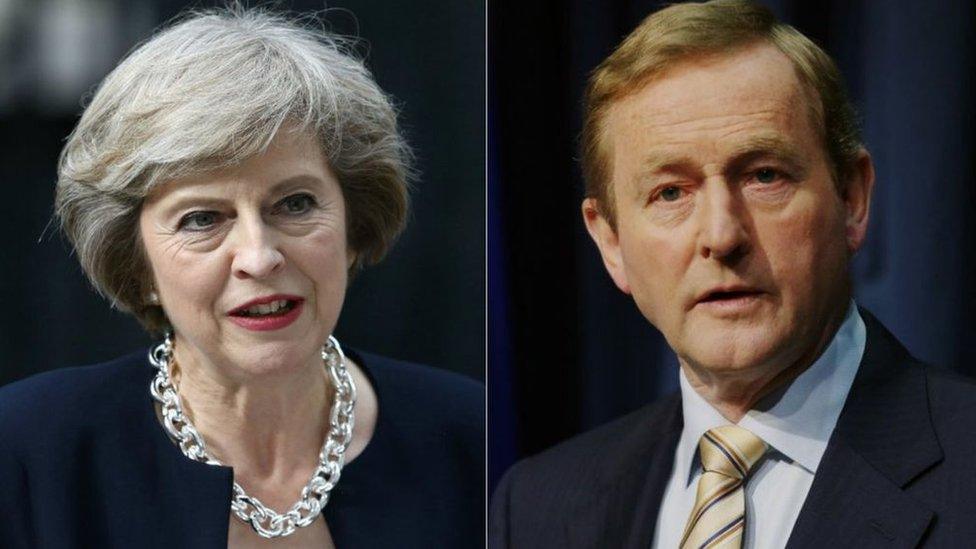
Theresa May and Enda Kenny have had a phone conversation about the situation in Northern Ireland
- Published11 January 2017
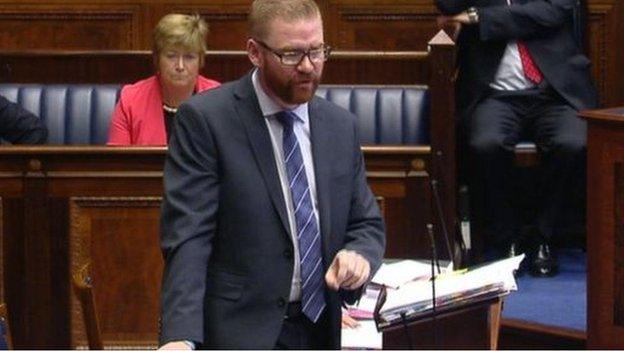
- Published10 January 2017
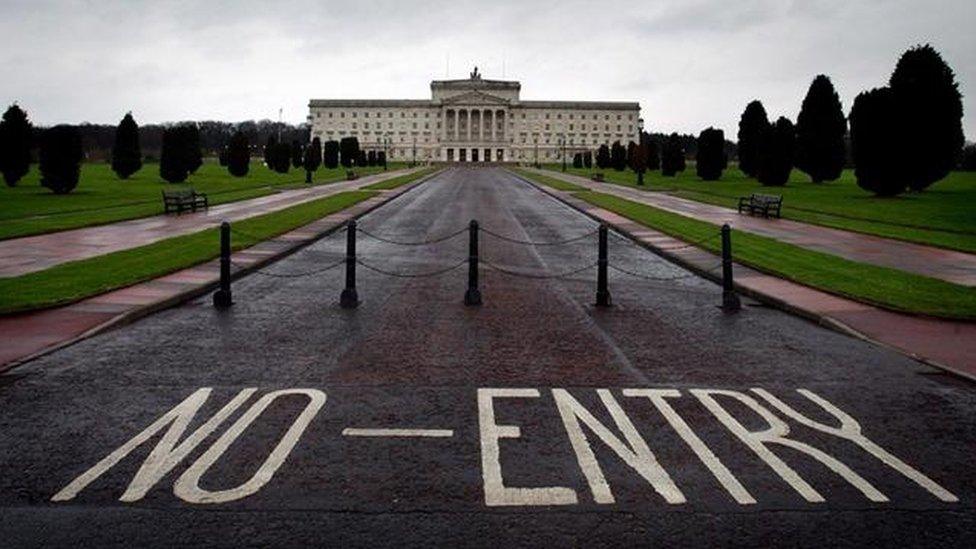
- Published7 March 2017
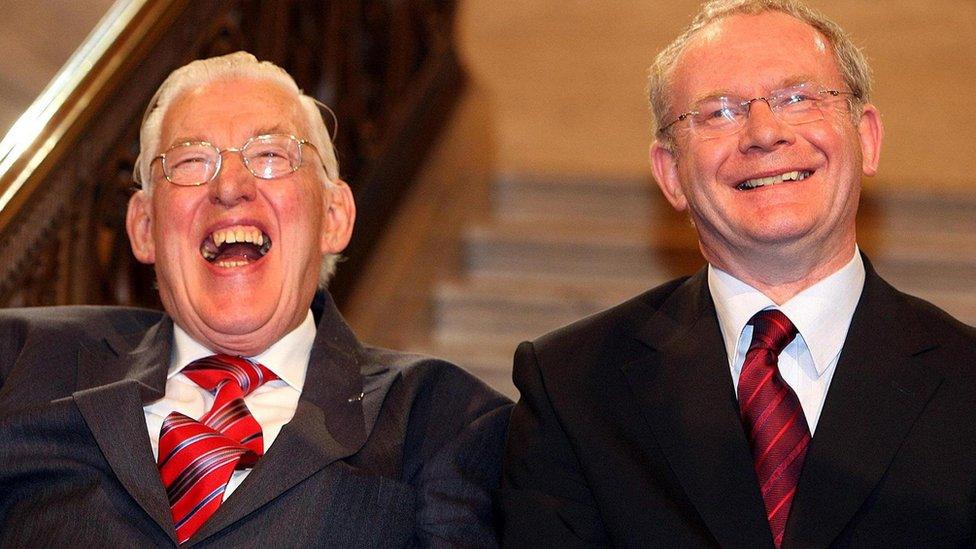
- Published10 January 2017
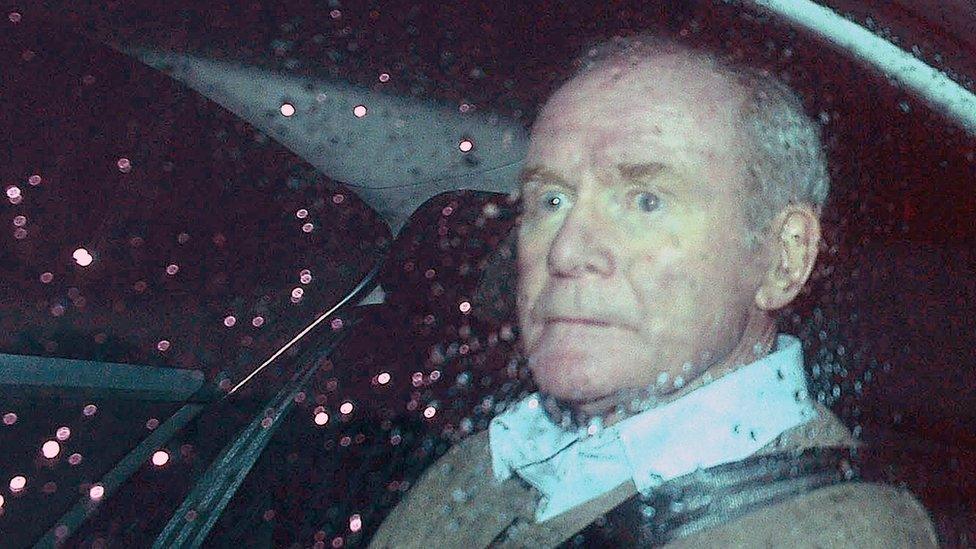
- Published9 January 2017
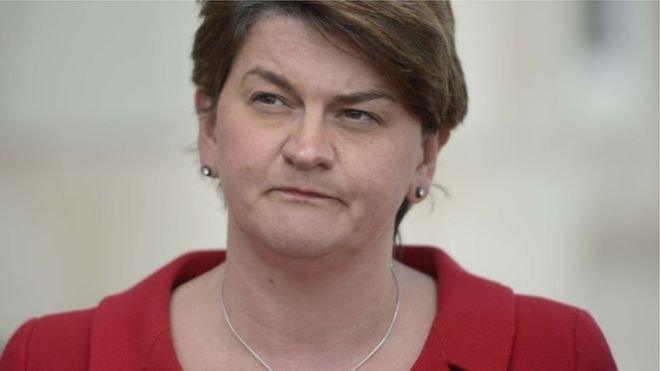
- Published10 January 2017
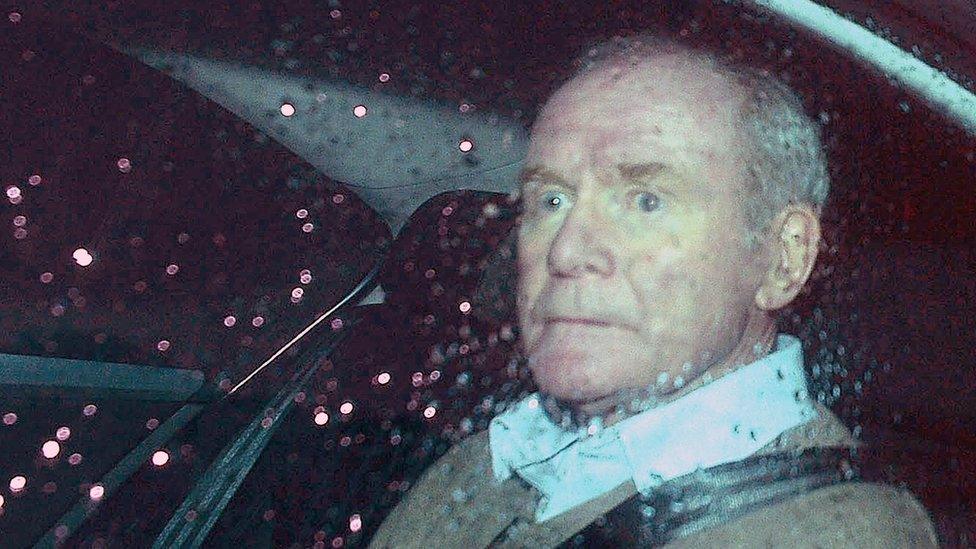
- Published23 October 2019

- Published19 December 2016
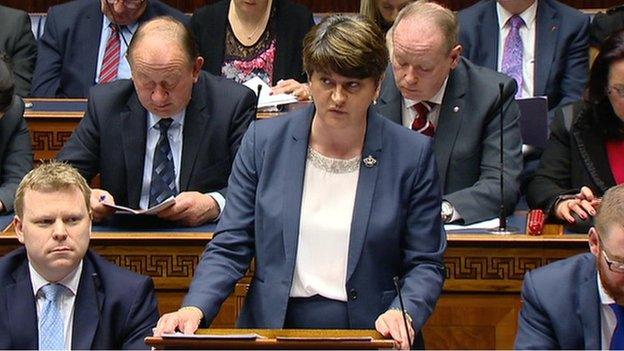
- Published7 November 2017
